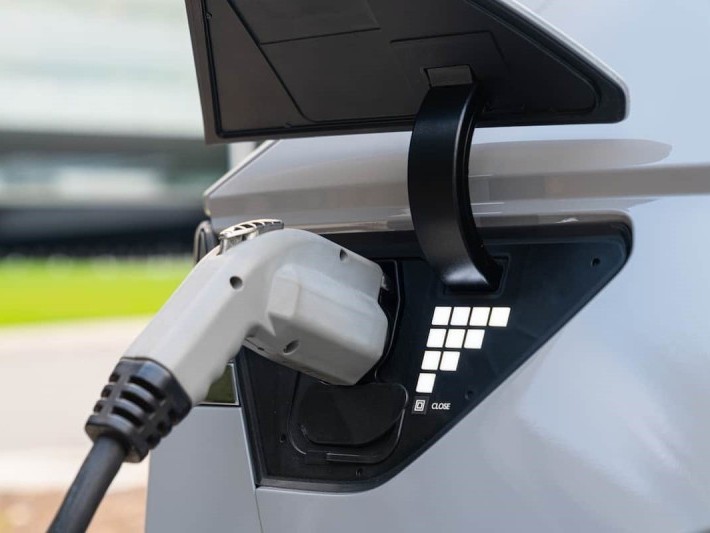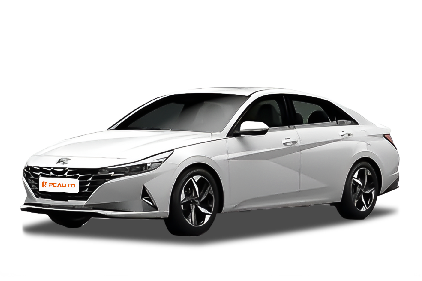Q
Is Hyundai Elantra FWD or AWD?
Hyundai Elantra is equipped with front-wheel drive (FWD), not all-wheel drive (AWD). Front-wheel drive means the engine powers the front wheels of the vehicle. This layout is quite common in many vehicles because it has several advantages. It simplifies the drivetrain, reducing complexity and cost, which helps offer consumers a more affordable price. Additionally, since the weight of the engine is on the drive wheels, it provides better traction under normal driving conditions, such as on dry and wet roads. As for Hyundai Elantra, the front-wheel drive system works together with other components, like the suspension and braking systems, to ensure a smooth and stable driving experience. Whether you're commuting in the city or taking a long trip, the front-wheel drive setup helps the Elantra deliver reliable performance.
Special Disclaimer: This content is published by users and does not represent the views or position of PCauto.
Related Q&A
Q
How many miles will a 2018 Elantra last?
The 2018 Elantra can typically hit 200,000 to 300,000 kilometers with regular maintenance and sensible driving. The actual mileage depends on day-to-day upkeep, driving habits, and road conditions. Hyundai's engine and transmission tech is pretty solid these days—stick to regular oil changes, filter replacements, brake fluid flushes, and keep an eye on the chassis and suspension, and you'll see its durability really shine. It's worth noting that the 1.6L and 2.0L naturally aspirated engines are known for being reliable workhorses, while the turbo versions need a bit more attention to the cooling system and fuel quality. Also, checking tire wear and wheel alignment regularly helps extend the car's life too. If you're mostly driving in stop-and-go city traffic, consider shortening your maintenance intervals—all that starting and stopping can wear on the engine more. Long-term, the stability of the electronic systems matters too, especially sensor and wiring aging. A regular computer diagnostic check is a good idea there. All in all, as an economy car, the Elantra holds up well in its class. With proper care, it'll easily handle daily family driving needs.
Q
How fast does a 2018 Hyundai Elantra go?
The top speed of the 2018 Hyundai Elantra varies by specific configuration. The version with the 2.0-liter naturally aspirated engine has a top speed of around 195 km/h, while the 1.6-liter turbocharged variant can exceed 210 km/h. Actual performance is also affected by factors like road conditions and vehicle load. This car is a popular family sedan locally, with power tuning focused on the smoothness and fuel efficiency needed for daily driving. While its top speed isn't the highest in its class, the 6-speed automatic transmission responds well and the chassis offers balanced stability. It's important to note that the legal speed limit on Malaysian highways is 110 km/h, so it's advisable to follow traffic regulations when driving—speeding is not only dangerous but can also result in heavy fines. If you have higher performance needs, you might want to check out Hyundai's N series models, which are specially tuned for better power delivery. Of course, for daily use, the Elantra's 1.6T version already provides a decent acceleration experience, going from 0-100 km/h in about 7.5 seconds.
Q
How reliable is a 2018 Hyundai Elantra?
The 2018 Hyundai Elantra ranks slightly above average in reliability. Its powertrain features tried-and-true 1.6L or 2.0L naturally aspirated engines paired with a 6-speed automatic transmission—stable tech with low maintenance costs, perfect for daily commuting. The interior focuses on practical materials with smart space planning, though highway noise insulation feels a bit lacking. Common issues include occasional electronic glitches and a stiff suspension, but overall failure rates stay below class average, and regular maintenance seriously boosts longevity. For used car shoppers, prioritize checking transmission shift smoothness and chassis rattles, plus dig into complete service records. In its segment, the Elantra holds mid-tier resale value—around 45-50% of original price after five years—with affordable insurance and easy access to parts. If going used, aim for trims with the SmartSense active safety suite; those features make a real difference for on-road security.
Q
How long do 2018 Elantras last?
The 2018 Hyundai Elantra can typically hit 200,000 to 300,000 kilometers with regular maintenance and normal use. Its lifespan really depends on driving habits, how often you service it, and local climate. The 1.6L and 2.0L naturally aspirated engines under the hood are solid, proven units—keep up with oil changes, transmission fluid swaps, and timing belt replacements, and the powertrain should hold up reliably for years. The body's rust protection is decent too; just keep the undercarriage clean if you're in a humid area to avoid premature corrosion. One thing to watch, though: the suspension and electronics tend to need more attention as the miles stack up. I'd recommend checking the shocks and ball joints every 50,000 km, and keep the infotainment system updated to keep everything running smoothly. Among its peers, a well-maintained Elantra holds its own in durability, and clean 2018 models still have good resale value on the used market. If you're planning to keep it long-term, hang onto those service records and stick with OEM parts for repairs when possible.
Q
How long does a 2018 Hyundai Elantra battery last?
The battery life of a 2018 Hyundai Elantra typically ranges from 2 to 5 years, depending on usage habits and environmental factors. Things like frequent short trips, hot climates, or leaving it sitting for long periods can shorten its lifespan, while regular maintenance and avoiding deep discharges help extend it. It's a good idea to check the battery's health around every 3 years. If you're having trouble starting the car, notice dim headlights, or your electronics are acting slow, it might be time for a replacement.
Choosing the right battery type matters too. Regular lead-acid batteries are cheaper but don't last as long, while AGM or EFB batteries, though more expensive, work better with start-stop systems and are more durable. Daily habits like cutting down on using electrical devices after turning off the engine and cleaning corrosion off the battery terminals can also help prolong its life. When replacing the battery, stick with one that matches the original specifications and have a professional install it to ensure compatibility and safety.
Q
What is the most common problem with the 2018 Hyundai Sonata?
The most common issues with the 2018 Hyundai Sonata are engine-related problems, especially the 2.4L Theta II GDI engine which may experience excessive oil consumption or engine knocking. Some owners report needing to add oil after driving a certain mileage, and in severe cases, this could lead to engine damage. It's advisable to regularly check oil levels and perform timely maintenance. Additionally, some vehicles might have transmission shifting jerkiness, particularly at low speeds. This is usually related to software calibration or transmission fluid condition—upgrading the TCU program or changing the transmission fluid may improve the issue. For the body electronics, the infotainment screen occasionally freezes or goes black; restarting the system or updating the software typically resolves this. The Sonata's suspension system may develop rattles after long-term use, so checking for worn bushings or shock absorbers is key. For owners, following the official maintenance schedule and using genuine parts can effectively extend the vehicle's lifespan. If any abnormalities are noticed, it's best to get it inspected at an authorized service center promptly. Hyundai's warranty policy usually covers such issues, especially for low-mileage vehicles. Regularly checking tire wear and wheel alignment also helps improve driving stability. This car performs well in fuel economy and comfort within its class, and proper maintenance will keep it in good condition.
Q
How long does a 2018 Hyundai Elantra engine last?
The engine lifespan of the 2018 Hyundai Elantra typically ranges from 200,000 to 300,000 kilometers, depending on regular maintenance and driving habits. Timely oil changes, periodic inspections of critical components like the cooling system and timing belt can significantly extend engine longevity. Hyundai's Gamma series engines are known for their durability; as long as you avoid prolonged high-load operation or ignore warning light alerts, this model's reliability is solid. It's worth noting that turbocharged variants may have slightly higher maintenance requirements than naturally aspirated ones. It's recommended to check turbo condition every 50,000 kilometers and use fully synthetic oil meeting factory specifications. The local hot and humid climate might accelerate rubber hose aging, so regularly inspecting engine bay hose sealing performance is also important. For used car buyers, professional testing to verify engine compression ratio and presence of abnormal noises is advisable—these indicators directly reflect remaining lifespan. With complete maintenance records and no major accidents, an Elantra with over 150,000 kilometers can still maintain good operating condition.
Q
Does the 2018 Hyundai Elantra have a timing belt or chain?
The 2018 Hyundai Elantra comes with a timing chain instead of a timing belt. This design offers better durability and lower maintenance costs—unlike a timing belt, it usually doesn’t need regular replacement and can typically last the entire lifespan of the engine under normal conditions. However, it’s still necessary to periodically check the wear on the chain tensioner and guides. Timing chains are better suited for the high-revving, high-temperature operating environments of modern engines compared to belts. They might be a bit noisier but are more reliable, and many brands have been leaning toward chain designs in recent years. It’s worth noting that while chains have a long lifespan, insufficient lubrication from delayed oil changes can still cause them to wear or stretch, so sticking to regular maintenance schedules is crucial. The Elantra’s powertrain has a large local presence, ensuring ample supply of repair parts and overall good maintenance accessibility. For budget-conscious buyers who value practicality, this low-maintenance design saves a significant amount on upkeep costs—something that’s also a common technical approach among Japanese and Korean models in the same class.
Q
What are the common problems with the 2018 Elantra?
The 2018 Elantra's common issues mainly center around transmission jerkiness, especially rough shifting at low speeds. Some owners report minor rattling noises with the dual-clutch version, which can usually be improved through software updates or transmission fluid replacement. On the engine front, the 1.6L Gamma unit might occasionally trigger the check engine light, mostly related to the oxygen sensor or ignition coils – regular maintenance helps lower the chances. Electronics-wise, the infotainment screen could lag or have spotty Bluetooth connectivity, a common quirk with that era's system. Body-wise, watch the sunroof drains – they're pretty narrow, so cleaning them regularly during rainy seasons prevents clogging. After long-term use, the rear torsion beam bushings in the suspension might wear out, causing creaking sounds over speed bumps. The cabin air filter is located behind the glove box, making DIY replacements a bit of a hassle. On the upside, the Elantra delivers solid fuel economy – the 1.6L model averages around 7-8L/100km in the city – though using 95-octane gasoline is recommended for optimal performance. Regularly replacing the timing chain and cleaning the throttle body effectively extends engine life. The factory 5-year warranty covers most major components too, so it's best to contact an authorized service center first when issues pop up.
Q
What kind of engine is in the 2018 Elantra?
The 2018 Elantra offers two gasoline engine options: the 1.6-liter Gamma MPI naturally aspirated engine and the 1.6-liter Gamma T-GDI turbocharged engine. The former puts out 123 horsepower, mated to a 6-speed manual or automatic transmission, perfect for daily commuting. The latter cranks up the power to a more robust 201 horsepower, paired with a 7-speed dual-clutch transmission for a sportier driving feel. Both engines feature Hyundai's advanced gasoline direct injection technology and lightweight design, striking a solid balance between fuel efficiency and performance. It's worth noting that the Gamma engine series is known for its reliability and low maintenance costs—routine upkeep basically just involves regular oil and filter changes. For practicality-focused buyers, the naturally aspirated version handles city driving just fine, while those after more driving fun should lean towards the turbocharged model. Both deliver above-average fuel economy for the class.
Popular Cars
Model Year
Car Compare
Car Photo
Latest Q&A
Q
Does the 2019 Golf GTI have a timing belt or chain?
The 2019 Golf GTI uses a timing chain instead of a timing belt—a design that offers better durability and lower maintenance costs. Typically, a chain lasts as long as the engine itself and rarely needs replacement, whereas a belt requires inspection or replacement every 60,000 to 100,000 km. If neglected, a worn belt can snap and cause severe engine damage.
VW’s EA888 engine family has long relied on chain-driven systems, which are relatively quiet and highly reliable. That said, it’s crucial to periodically check the tensioner’s condition. Some earlier models experienced timing issues due to tensioner design flaws, but this was addressed in the 2019 version.
For performance enthusiasts, a chain system handles high-revving stress better, making it a common choice for hot hatches like the GTI. For daily driving, just stick to VW 50400/50700-spec oil as recommended in the manual—proper lubrication keeps the chain system healthy long-term.
One heads-up: If you hear noticeable metallic rattling near the front of the engine, have the guides or tensioner inspected ASAP. Unlike the telltale belt squeal before failure, this noise is a classic sign of chain-related wear.
Q
What is the recall on the 2019 GTI?
The 2019 Volkswagen Golf GTI was subject to a safety recall addressing two potential issues. First, the fuel pump control unit software could malfunction, potentially causing engine stalling in rare cases. Second, some vehicles might have rear suspension stabilizer link bolts that weren't tightened to specification, posing a loosening risk. Owners can visit authorized dealers for free software updates or bolt retightening.
These proactive recalls demonstrate Volkswagen's commitment to safety. Dealers often handle outstanding recall items during routine maintenance.
For performance-oriented models like the GTI, it's wise to go beyond recall checks. Pay close attention to the turbo system, DSG transmission fluid, and brake wear—these components endure more stress during spirited driving. If warning lights appear or you notice unusual noises, get a professional inspection promptly. Keeping the car in top shape ensures you can fully enjoy its dynamic capabilities.
Q
Does the 2019 GTI require premium gas?
The 2019 GTI does recommend using high-octane fuel (typically RON 95 or above). Its 2.0L turbocharged engine has a relatively high compression ratio, and premium gas ensures optimal performance while reducing knock risk. It also helps maintain engine cleanliness and long-term reliability.
While the car may tolerate lower-octane fuel (like RON 92), you’d see slightly reduced power output and fuel efficiency. Over time, it could also affect engine longevity. Turbocharged engines are particularly sensitive to octane ratings since turbos generate higher heat and pressure—high-octane fuel handles these conditions better.
Mixing different fuel grades occasionally won’t hurt, but sticking to the manufacturer’s recommendation is ideal. Also, periodic fuel additive treatments can help clean carbon buildup, especially for direct-injection engines.
One more thing: even with the same octane rating, fuel additive packages vary by brand. So, picking a reputable gas station matters too.
Q
How long will a 2019 GTI last?
The lifespan of a 2019 GTI largely depends on maintenance and driving habits. With regular oil changes, transmission fluid replacements, and avoiding aggressive driving, it can easily clock over 200,000 kilometers—or even more. Its 2.0T engine and DSG gearbox are proven combos, and as long as you stick to the factory service schedule, mechanical reliability won’t be an issue.
Just keep in mind: turbocharged engines demand extra care. Always use the right spec full-synthetic oil and monitor the cooling system. Climate plays a role too—hot, humid conditions mean paying extra attention to rubber seals and electronics. Every 50,000 km, have the timing chain and high-pressure fuel pump inspected (key items for turbos).
Driving style matters. Don’t redline it constantly, and let the engine warm up properly after cold starts. Rustproofing helps long-term durability, so regular underbody washes are smart. Nail these details, and this car’s built to last.
Q
How fast is the 2019 GTI?
The 2019 GTI truly delivers when it comes to performance. Under the hood lies a punchy 2.0-liter turbocharged four-cylinder, churning out 228 horsepower and 350 Nm of torque. Whether you opt for the engaging 6-speed manual or the lightning-fast 7-speed DSG, this hot hatch rockets from 0-100 km/h in just 6.3 seconds, with an electronically limited top speed of 250 km/h.
What really sets the GTI apart is its razor-sharp handling. The sport-tuned suspension and electronic differential lock work together to deliver precise steering and rock-solid cornering stability. It’s the perfect blend of everyday practicality and proper driver’s car thrills—a well-rounded hot hatch in every sense.
For enthusiasts, the GTI’s tuning potential is massive. Many owners go for ECU remaps or intake/exhaust upgrades to squeeze out even more power. Just remember to keep things street-legal—safety and compliance should always come first. Around here, these pocket rockets have a solid following, and it’s easy to see why.
View MoreRelated News

In Malaysia, which sliding door MPVs are available?
MichaelOct 30, 2025

Modern Ioniq 5 N Lands in Malaysia: Track-Level Performance Electric Vehicle is Here, Priced Possibly Below RM 400,000?
JohnSep 10, 2025

Hyundai's Big Return to Malaysia: Top 5 Models Expected
MichaelMay 30, 2025

580,000 km & 87.7% Battery Health: Ioniq 5’s Incredible Durability
MichaelMay 6, 2025

Revolutionizing Hybrids: Hyundai’s New System vs. Toyota's Hybrid System
Kevin WongApr 22, 2025
View More














Pros
Cons